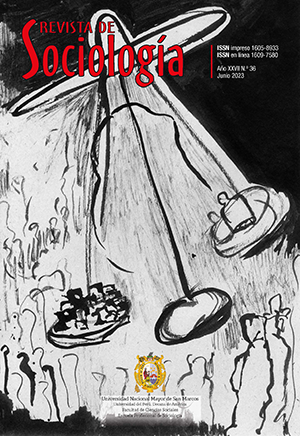Cultural policy in crisis contexts: the crossroads of the National Culture Policy
DOI:
https://doi.org/10.15381/rsoc.n36.26648Keywords:
cultural policies, Peru, national cultural policy, public cultural management, interculturality, cultural industries, heritageAbstract
This article has as its central argument that cultural policy and management in Peru occurs in a context of disjointed dynamics and precarious consolidation, which destabilizes, but at the same time requires, an articulating narrative of its guiding framework, the National Cultural Policy 2030. In particular, it is argued that the scenario that defines current cultural policy and management in Peru is characterized, on the one hand, by notable advances from both civil society and the public and private sector in different aspects of the cultural field, as well as as well as the affirmation of consensus in relation to new approaches for the development of the cultural sector. But also, and simultaneously, characterized by an institutional-administrative uncertainty, the multiple crises and the absence of political horizons in relation to the field of culture. This results in a National Cultural Policy 2030 (PNC 2030) that is based on necessary premises and approaches in tune with the global cultural agenda, which is based on solid evidence and that outlines necessary objectives for strengthening the sector in the country; but which is uncertain regarding its sustainability, results and social legitimacy. Therefore, this article suggests that the main challenge of the PNC 2030 —and cultural management in Peru— is to act in a scenario without guarantees and, from there, recover its ethical-political dimension using the tools of public administration.
Downloads
Published
Issue
Section
License
Copyright (c) 2023 Félix Antonio Lossio Chávez

This work is licensed under a Creative Commons Attribution 4.0 International License.
AUTHORS RETAIN THEIR RIGHTS:
a. Authors retain their trade mark rights and patent, and also on any process or procedure described in the article.
b. Authors retain their right to share, copy, distribute, perform and publicly communicate their article (eg, to place their article in an institutional repository or publish it in a book), with an acknowledgment of its initial publication in the Revista Sociología.
c. Authors retain theirs right to make a subsequent publication of their work, to use the article or any part thereof (eg a compilation of his papers, lecture notes, thesis, or a book), always indicating its initial publication in the Revista Sociología (the originator of the work, journal, volume, number and date).
























